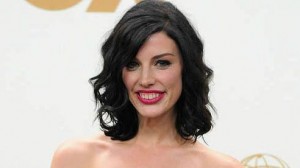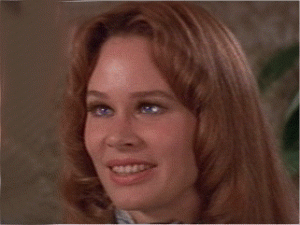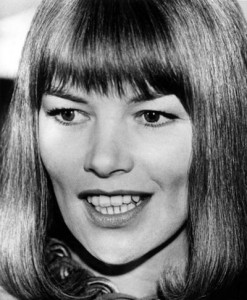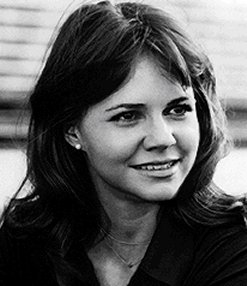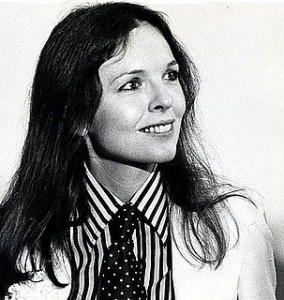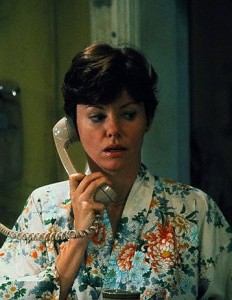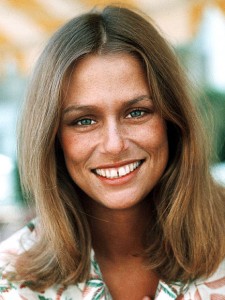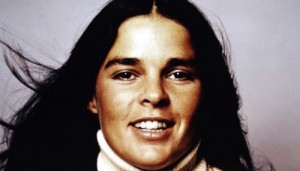Do not read this if you have not watched all of “Mad Men” Season Six – spoilers ensue.
I’ve just finished watching the season finale of “Mad Men.” Among all of the other moves and changes in the air, actress Megan Draper (Jessica Paré) — the “child bride” of our antihero, Don Draper — is poised to move to L.A. to investigate “all these opportunities in Hollywood.” Thinking about the timing of this, and what Hollywood was cranking out in the late 60s and 70s, I predict that the Divine Ms. Megan is going to be a smash hit in tinsel town. Why? Apparently she’s got the acting chops — she’s holding her own on a hit soap opera — and (speaking of chops) I predict that her interesting-looking mouth is going to win her all the grittiest roles. It was right about the late 60s and early 70s that Hollywood started recognizing the value of the imperfect face, and 1970s actresses were notoriously quirky in this regard. Karen Black, who was glorious in the very dark “Nashville” (1975), had a crossed eye. The effect added an authentic note to her strange-girl characters and epitomized the off-set feel of the era.
Films of the 70s were all about the unconventional, the antihero. As one writer put it, “films began to reflect the disenfranchisement brought by the excesses of the past twenty years.” Post-Vietnam, directors of the time were willing to take an unflattering look at America as they had never done before, and their honest look into the face of a country gone mad was reflected in their casting choices. Sure, Catherine Deneuve was still around to reflect mid-century’s infatuation with the perfect, cool, icy blonde, but many of the major award-winning films of the 70s starred actresses who might not have had a chance in an earlier era. In the 1970s, Glenda Jackson was nominated for four Academy Awards and won two. She was mighty in talent, but no classical beauty.
Sally Field, who won every award under the sun for 1979′s “Norma Rae,” was more cute than glamorous (and we saw her sweat on screen!), as was Diane Keaton, who took home all the awards in 1977′s “Annie Hall.”
Marsha Mason, another plain powerhouse, was nominated for several Oscars in the 1970s and “Cinderella Liberty” earned her a Best Actress Golden Globes statuette.
I predict that Megan Draper — or Megan Calvet, if she wants to see her birth name in lights — is going to be a casting director’s dream as she crosses the threshold into this newer, darker Hollywood. I can see her cast opposite Al Pacino, John Cazale, Steve McQueen, Jack Nicholson, Peter Fonda or any of the other Bad Boys of the time. That is, of course, unless she finds herself competing for roles against Lauren Hutton
or Ali McGraw — two “dentally different” actresses who drew some juicy roles at the time AND garnered admiration for owning their uniqueness.1970s Hollywood was all about relentless honesty, and Megan Calvet Draper is going to fit right in. Don Draper, however, should stay in New York.

